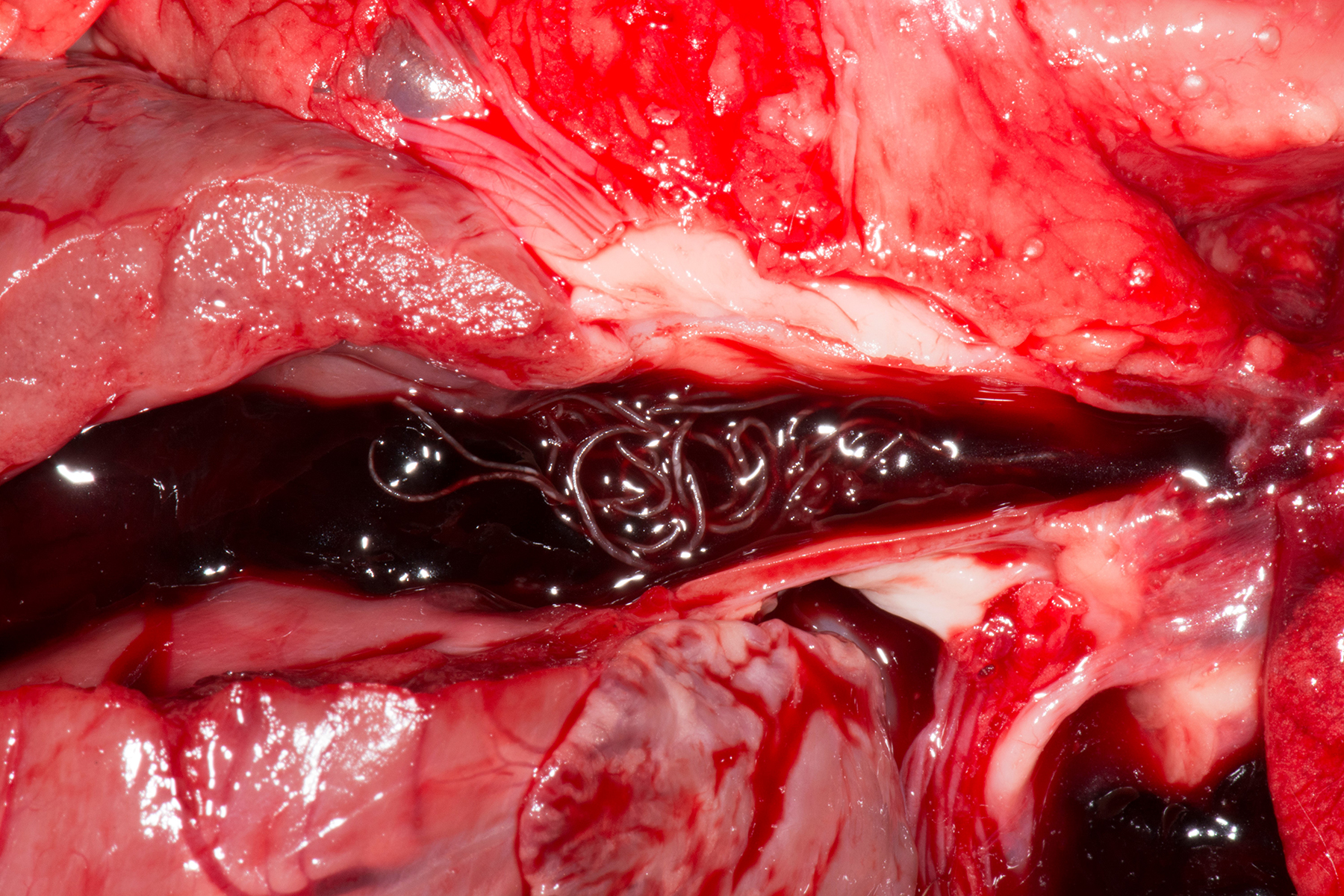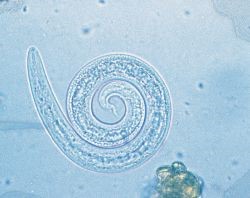French Heartworm
(Angiostrongylus vasorum)
Angiostrongylus vasorum is a strongylid nematode parasitizing the pulmonary arteries (Fig 1) of dogs and wild canids, responsible for often severe respiratory disorders but also other associated clinical signs. Infection of dogs is via ingestion of intermediate (gastropods) or paratenic (microvertebrates) hosts.
| Parasite: Angiostrongylus vasorum |
| Common name: French heartworm |
| Host: Canids, rarely other carnivores |
| Pre-patent period: 6-8 weeks |
| Location of adults: Pulmonary arteries |
| Distribution: Europe, North America, South America |
| Transmission route: Oral [ingestion of intermediate (slugs, snails) or paratenic hosts (frogs, chicken)] |
| Zoonotic: No |
Distribution
Angiostrongylus vasorum is distributed in Europe, North America and South America (Brazil, Argentina, Bolivia, and Colombia).
Clinical signs
Some cases are asymptomatic, some are symptomatic. Common clinical signs include respiratory disorders (cough, dyspnoea), lethargy, coagulopathy, neurological signs. Chronic cases present also anaemia, weight loss, fever, and weakening.

Figure 1 Angiostrongylus vasorum in the pulmonary arteries of a red fox. (Image credit: Dr. A. D. Mihalca)

Figure 2 First-stage larva of a canine lungworm containing a ‘kink’ in the tail. (Image credit: Dr. R. Traub)
Diagnosis
Various approaches are available for diagnosis. Detection of L1 in faeces (Baermann method) is possible during the patent phase of the infection (Fig 2). Differential diagnosis with other larval stages (i.e., Crenosoma, Filaroides) should be made. Various serologic methods are also available, including a rapid in-clinic test for the detection of circulating antigens.
Treatment
Macrocyclic lactones are effectively used for the treatment of canine angiostrongylosis. Moxidectin (2.5 mg/kg, spot on), repeated after 4 weeks or milbemycin oxime (0.5 mg/kg PO), weekly for 4 weeks. Another option is fenbendazole (25-50 mg/kg PO), daily for 3 weeks. To avoid thrombotic complications, supportive therapy is needed.
Control
Monthly chemoprophylaxis with or milbemycin oxime or moxidectin are recommended in endemic areas. If possible, access of dogs to gastropods or paratenic hosts should be prevented.
Public health considerations
None.
